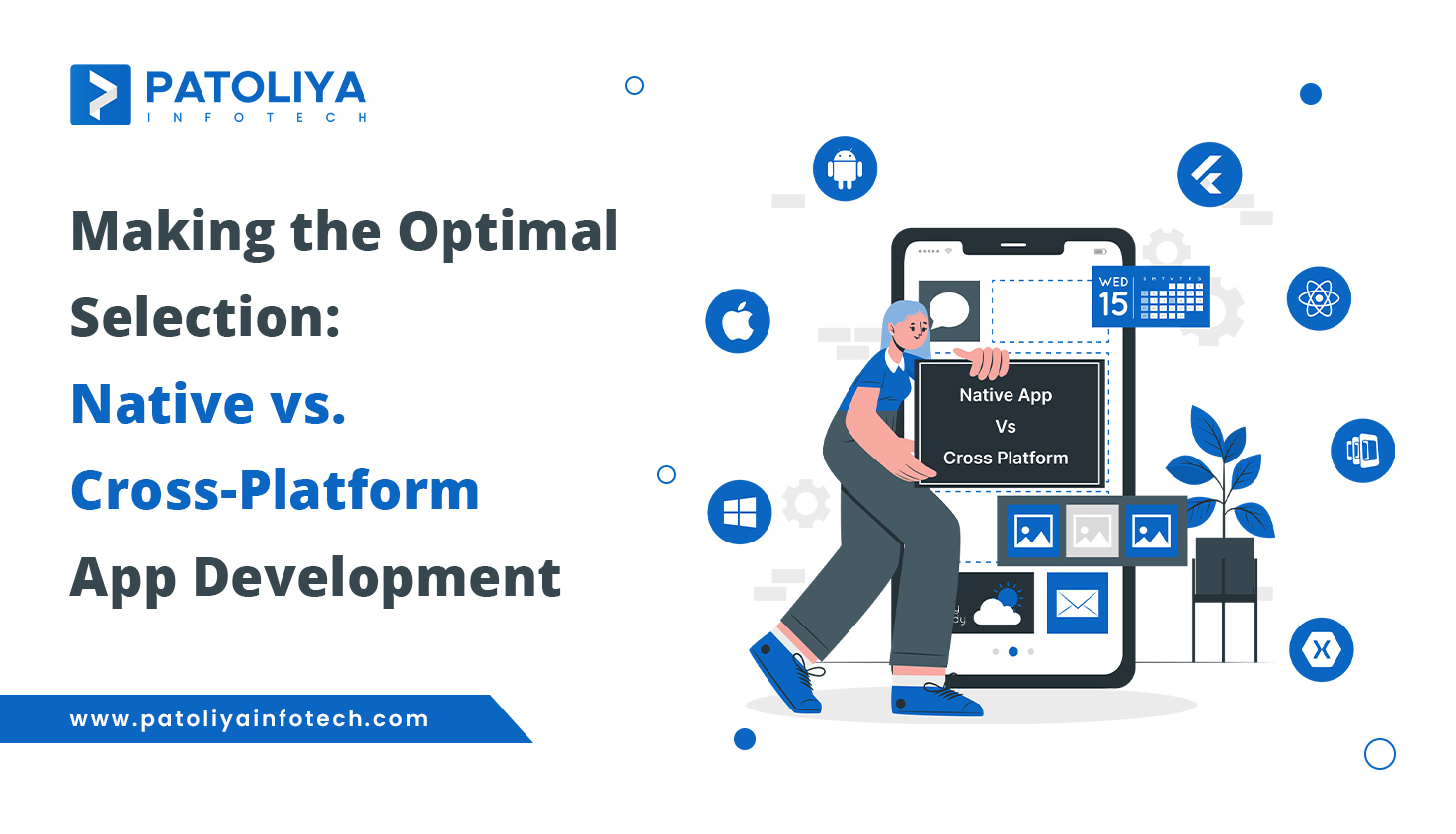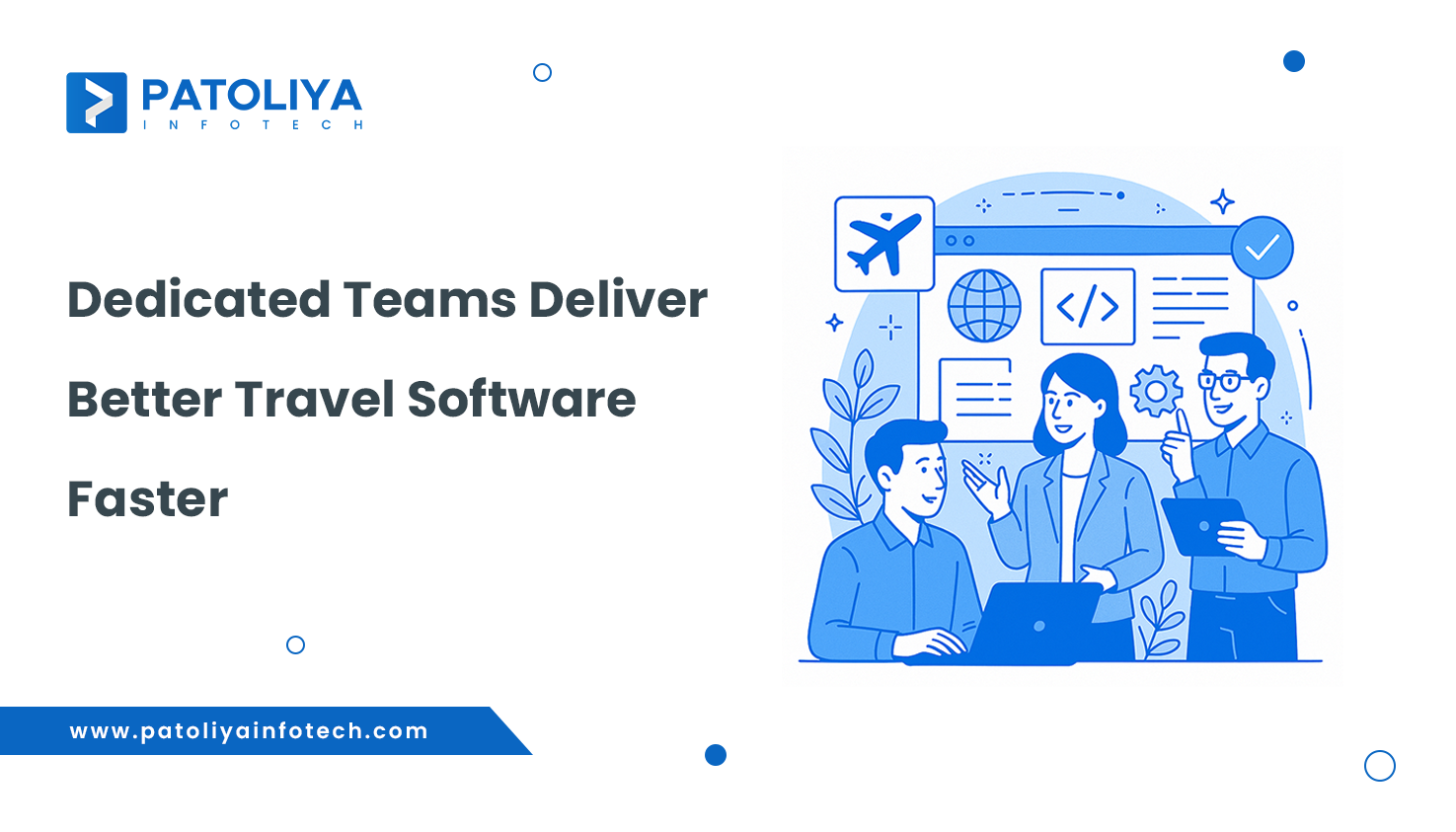Mobile App Dilemma: Native vs. Cross-Platform Strategies

Table of Contents
There's an increasing need for mobile operations as more people use mobile devices to pierce the internet. Thus, investing in the creation of a mobile app for your business makes sense.
Still, you might be interested in learning about the stylish technologies to employ to make sure that your app is excellent, secure, and useful. Beforehand, smart decisions can profit your company from the onset and help you avoid fresh charges.
Opting between native and cross-platform programming can be grueling. Although both technologies are largely advanced and salutary, each bone has unique rates that enable it to satisfy a range of requirements. As a result, it's important to consider both the size of your design and your specific conditions.
Let's look at the abecedarian differences between developing native and cross-platform mobile apps, as well as their advantages and disadvantages. By doing so, you will decide which approach suits the design's pretensions.
Mobile app : cross-platform versus native
I need interactive exercises for engaging followers and creating mobile strategies. But the argument over whether to develop software natively or cross-platform is still going strong! Now we'll start talking about native and cross-platform operations.
Initially, let's consider the fundamental issues brought up by the debate between native and cross-platform development. We will also look at each strategy's benefits and downsides.
How to Develop Native Apps
Creating a mobile app, particularly for a single platform, is referred to as" native mobile app development." These apps are made with the use of platform-specific tools and programming languages. For illustration, while creating native Android apps, inventors generally use Java or Kotlin, and when developing native iOS apps, they constantly use Swift and Objective-C.
Simplified Native App Benefits:
A better user experience
Their better stoner interface and design make them simpler and more aesthetically pleasing.
Superior Security Using platform-specific capabilities like point and face recognition, native apps maximize security. They also ameliorate overall security by duly managing API calls.
Offline Capability Native apps are exceptional at offering functions even when there's no dependable internet connection, guaranteeing utility whenever and far and wide.
Future-Ready Native technology is a dependable and long-lasting result that has been streamlined and is supported by well-known companies like Google and Apple.
Integration Quickly New system upgrades make it simple for inventors to incorporate new capabilities into native apps, keeping those apps up-to-date and useful for consumers.
Looking at the downsides of native operations
Making one native app collectively can be fairly precious; thus, it can be expensive to produce. Still, the freights increase if you want your program to serve on both iOS and Droid. Each app needs to be developed by two different brigades.
It takes longer to design, test, and update native software because doing so from scratch takes more time than doing so for cross-platform apps. The procedure can be vastly slower if you are creating two distinct native apps because you will need to write everything separately for each platform. This also holds for testing, conservation, problem fixes, and streamlining.
Native operations, which are made specifically for a device's capabilities and bear technical tackle factors like GPS and a camera, perform stylishly for complex operations.
Cross-platform development
Cross-platform programs are created to run on colorful platforms, as opposed to native operations, which are created specifically for one platform. As a result, you can save time and trouble by installing just one program and using it on both Android and iOS.
There are three different cross-platform app environments.
- Web cyber surfer
- combination of web and native factors
- tone-contained surroundings
Cross-platform mobile app development provides the following advantages:
Lower costs Developing a single app that works on different platforms eliminate the need for several apps. This reduces development charges by around 30% because we require a team with experience in using cross-platform frameworks.
Time Savings Developers may produce and release apps more quickly with cross-platform apps than with native apps because they use the same law for numerous platforms. The total development time is indeed shorter, though variations can be necessary.
Additional Market Reach: It can be precious and time-consuming to develop unique native apps for numerous platforms. By contemporaneously releasing an app on both the Apple and Google app stores, cross-platform development increases visibility and possible profit
However, cross-platform programming has some drawbacks:
Limited Functionality Some platform-specific capabilities may not be available in cross-platform apps, and they may not offer all the functions that native apps do.
Performance issues Due to variations in systems and bias, cross-platform apps might not perform as well as native programs. Comprehensive testing is essential since community problems and blights may occur.
For straightforward operations without the need for complicated functionalities, cross-platform apps work well.
When comparing native and cross-platform approaches, which is more cost-effective?
It's essential to compare the costs of developing native and cross-platform platforms. How intricately each application's features are designed determines the duration of each project. Adding a simple login or password feature takes around 26 to 44 hours while creating a complex search tool takes about 530 to 810 hours.
Longer development times undoubtedly result in greater developer involvement, which raises the cost of advanced features relative to basic ones. It takes a lot of effort to design native apps because there are two different apps to make for iOS and Android.
On the other side, cross-platform solutions use recycled code, which reduces costs. The amount of time and money spent on development is decreased by using the same codebase for iOS and Android apps.
Native or cross-platform app offer a better user experience.
The user experience is the stage at which user interactions in your mobile application translate into successful results! Businesses can grow or fail depending on how well they interact with mobile apps.
A startling 70% of shoppers, according to a poll, leave their shopping carts because of a bad user experience. Therefore, it is essential to create a user interface that enhances both app utilization and user engagement.
However, the question of which offers a superior user experience (UX) emerges when we compare native UI with cross-platform UI.
The user experience of native programs is superior to that of cross-platform applications. Each operating system has a unique design aesthetic and component set. Employing these native components for the user interface unifies the user experience.
How can Patoliya assist you with the creation of an app ?
The business needs to determine whether to use native or cross-platform software. Regardless of the chosen course, maintaining the same prerequisite of competency is necessary.
No matter, if you select native or cross-platform development, having experience in app development, is essential for providing the best user experiences.
At Patoliya Infotech, a qualified staff attends to your development needs, guaranteeing:
- Production of high-quality code.
- They employ a modular architecture.
- Continuous performance review.
- Excellent support following the release.
- Both automation and thorough testing.
Choose the best option now that the time for choosing has come. Do not hesitate to contact us if you have questions.



